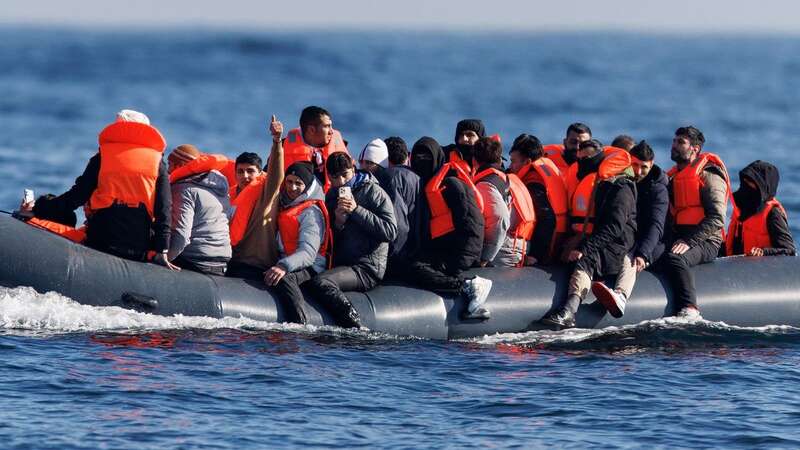
After two years of battles in the courts and Parliament the Rwanda deportation scheme is now to become law.
Prime Minister Rishi Sunak has hailed the plan to send illegal migrants to the African country as an “indispensable deterrent” that will stop the Channel crossings. The first flights are planned to take off in 10 to 12 weeks. But will the eye-wateringly expensive policy work? Here are five reasons why it is unlikely to stop the boats.
1. It is not a deterrent
Tens of thousands of people attempt to cross the Channel each year. Some are economic migrants seeking a better life in Britain but the majority are refugees who have fled war, torture, famine and oppression. Of the 46,000 who made the crossing in 2022, more than 6,000 were from Afghanistan, nearly 5,000 from Iran and 4,000 from Iraq.
Refugee organisations point out people who are so desperate they are willing to risk their lives crossing the Channel in dangerous weather and on overcrowded boats are not going to deterred by the threat of deportation to Rwanda. As if to underline this point, on the day the Bill became law five people, including a young girl, died trying to cross the Channel.
2. The numbers don’t add up
It is unclear how many illegal migrants Rwanda will be able to accommodate. The country initially set aside space for 300 people but 70% of the buildings have reportedly since been sold.
 Michelle Mone's husband gifted Tories 'over £171k' as Covid PPE row rumbles on
Michelle Mone's husband gifted Tories 'over £171k' as Covid PPE row rumbles on
The Government has suggested more than 2,000 people could be deported on multiple flights over the summer. This around 6% of the 30,000 who made the crossing in 2023. Anyone considering making the perilous journey from France knows only a small number will be deported to Rwanda and is therefore unlikely to be deterred by the scheme.
3. It’s not value for money
The Government has already paid £240million to Rwanda. The total payment over the next five years could be as high as £370million. On top of that the UK will pay Rwanda up to £170,000 per person relocated there, taking the total bill to around £500million.
Sunak has also drafted in 150 judges to process the deportation cases and recruited and trained 500 people to escort the migrants to Rwanda. Many will question if this is also money well spent when there is a backlog of 65,000 crown court cases in England and Wales.
4. Doesn’t tackle the real problem
The deportation scheme does nothing to tackle the criminal gangs who are behind the large numbers trying to cross the Channel each year. Labour argues the millions of pounds being spent on what it calls an “expensive gimmick” would be better targeted on rooting out and arresting the people smugglers.
Refugee charities have also called for “safe routes” so people in genuine need of asylum can enter the country without having to risk their lives after paying thousands of pounds to traffickers.
5. It could still face legal challenge
The first attempt to get the Rwanda scheme off the ground was scuppered when the Supreme Court ruled it illegal because ministers could not guarantee Rwanda was a safe country. Sunak has redrafted the Bill to allow ministers to overrule this judgement.
However, the Bill does not prevent individual migrants from challenging their deportation in the courts if they believe they will face “irreversible harm” by being removed.
Read more similar news:
Comments:
comments powered by Disqus
































